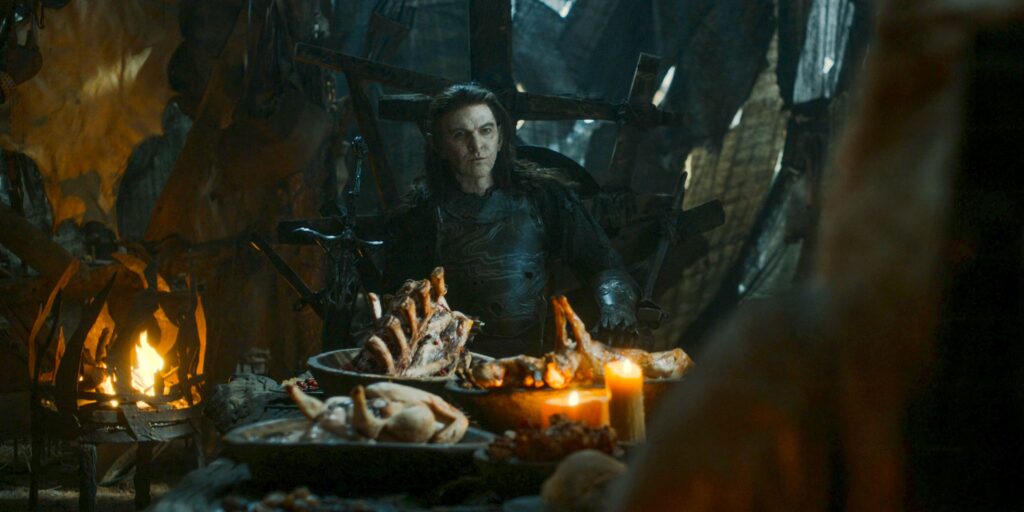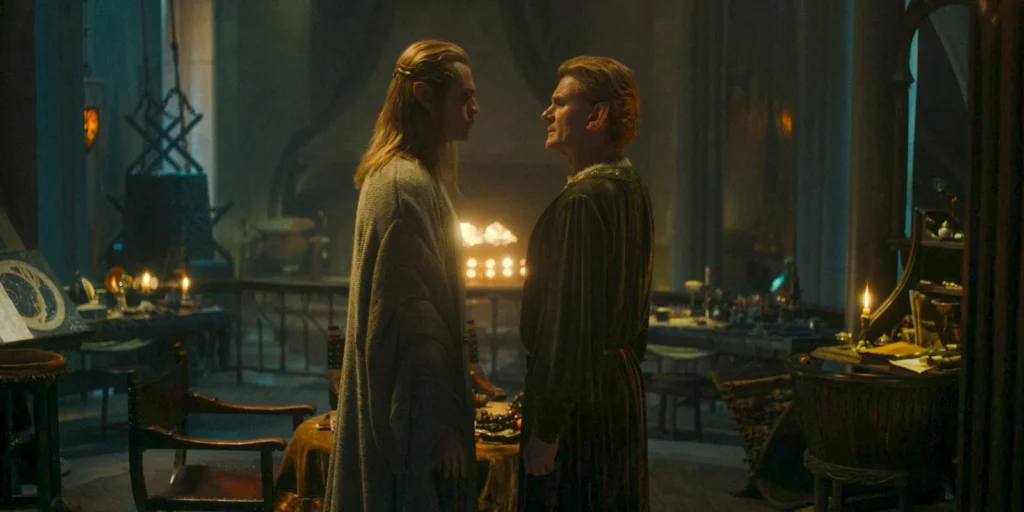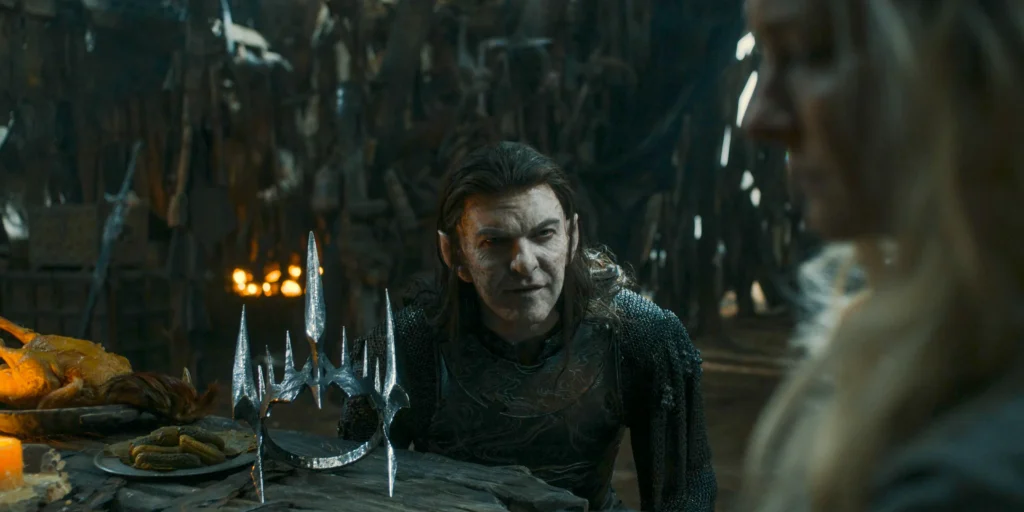1. Sauron’s Character Development

Rings of Power Season 2 gives Sauron’s character unprecedented detail and depth, taking him from a simple villain to a complex and multifaceted individual. Through this, the show shows Sauron’s personal thoughts and feelings, which make him more human. This approach gives viewers a new chance to understand the state of mind and motivations behind him.
This raises the question of whether this new portrayal of Sauron aligns with Tolkien’s original ideas. Tolkien introduced Sauron as a diabolical and deceitful character whose main goal was to gain power and control. His depth in the show makes him even more complex, but does it weaken his villainy? This is an important question, as viewers may have difficulty adjusting to this new Sauron.
Furthermore, when Sauron’s personal struggles are depicted, he struggles just as much as the other characters. This brings out his humanity, but it also blurs his identity as a symbol of evil. Viewers may have trouble knowing who to trust—a villain who has human feelings or a demon who only fights for power.
2. A New View of the Orcs

The Orcs are presented in a more sympathetic way in The Rings of Power season 2. The show features an Orc who is against war and is concerned for the safety of his family. This change brings the Orcs into a deeper story, making them more human in their perspective than just symbols of evil.
This change brings the sense that the Orcs are not just toys in Sauron’s hands, but have their own thoughts and feelings. It forces the audience to wonder if the true source of evil is Sauron or if it arises from the circumstances in which the Orcs have to survive. This helps to understand the nature of evil in Tolkien’s world, where all characters have their own storylines and struggles.
However, it also raises the question of whether this new presentation generates sympathy for the Orcs or turns them into another layered story. This could negatively affect the heroes of the show because if the Orcs are made to be sympathetic, the heroes’ struggle against them becomes even more difficult.
Read Also: 5 Jaw-Dropping Reasons Gladiator 2 Confirms Major Spoilers About Paul Mescal’s Character
3. Sauron’s strategic weaknesses

In Season 2, Sauron is shown surrendering to the Aedar, which makes him appear weak. The idea behind this surrender could be that Sauron is a cunning and devious strategist, but his power and influence are diminished in the process. Viewers may have difficulty understanding why a powerful villain like Sauron is put in such a position.
This leaves viewers wondering if this strategy of Sauron is ultimately a sign of his weakness. How does a villain who does not directly participate in battle maintain his power? Does this show that he is now losing his power or is it a strategic move to deceive his enemies?
Furthermore, when Sauron appears before the Aedar in his Hellbrand form, he is not willing to reveal his true form. This also indicates that perhaps he is not trusting his followers, or he wants to keep himself in a controlled environment. This makes him a multi-faceted character, but it also affects his villainy.
4. Nature of deception and treachery

Sauron’s story in The Rings of Power is based on deception and treachery. His devious actions and plans justify him as a villain. In the show, it is shown that Sauron is not just a simple villain, but he also acts as a religious element. This means that he is not only evil, but he is trying to influence society in his ways.
However, this approach is different from Tolkien’s original creation, where Sauron’s goal was clearly power and destruction. The use of his cunning and religious form in the show could be a way to explain to the audience the depth of what he has done. This adds complexity to his character, but does it make him a positive character or does it deepen his evil?
It also makes sense that seeing Sauron as a symbol that represents the untruth and deception in our society can force viewers to ask themselves questions. Are we understanding reality correctly or are we just trusting the words of those who tell us they are right?
Read Also: Top 5 Reasons Why Harry Potter Reboot Fans’ Fears
5. Creating a Universal Viewpoint

The story of Sauron in The Rings of Power also touches on religious and cultural references in Tolkien’s world. The show shows that the character of Sauron is not just a villain, but rather an element that represents evil, deception, and the pursuit of power. This makes his character even more complex and forces viewers to wonder if the true source of evil is always an individual or if it can be part of a larger context.
With this perspective, viewers are helped to understand how evil develops in society. It is not just a personal evil but a part of a larger context. This is not the story of an individual, but rather a cultural story, one that is relevant even in today’s world. In this way, the story of Sauron is not just a historical tale, but one that resonates in a contemporary context.
However, the question arises as to whether this new approach is in sync with Tolkien’s original ideas. Tolkien’s world has always maintained a clear division between good and evil, but in this show this division is becoming blurred. This is a challenge for the audience, as they have to understand whether they can accept this new approach or not.
Source: THR